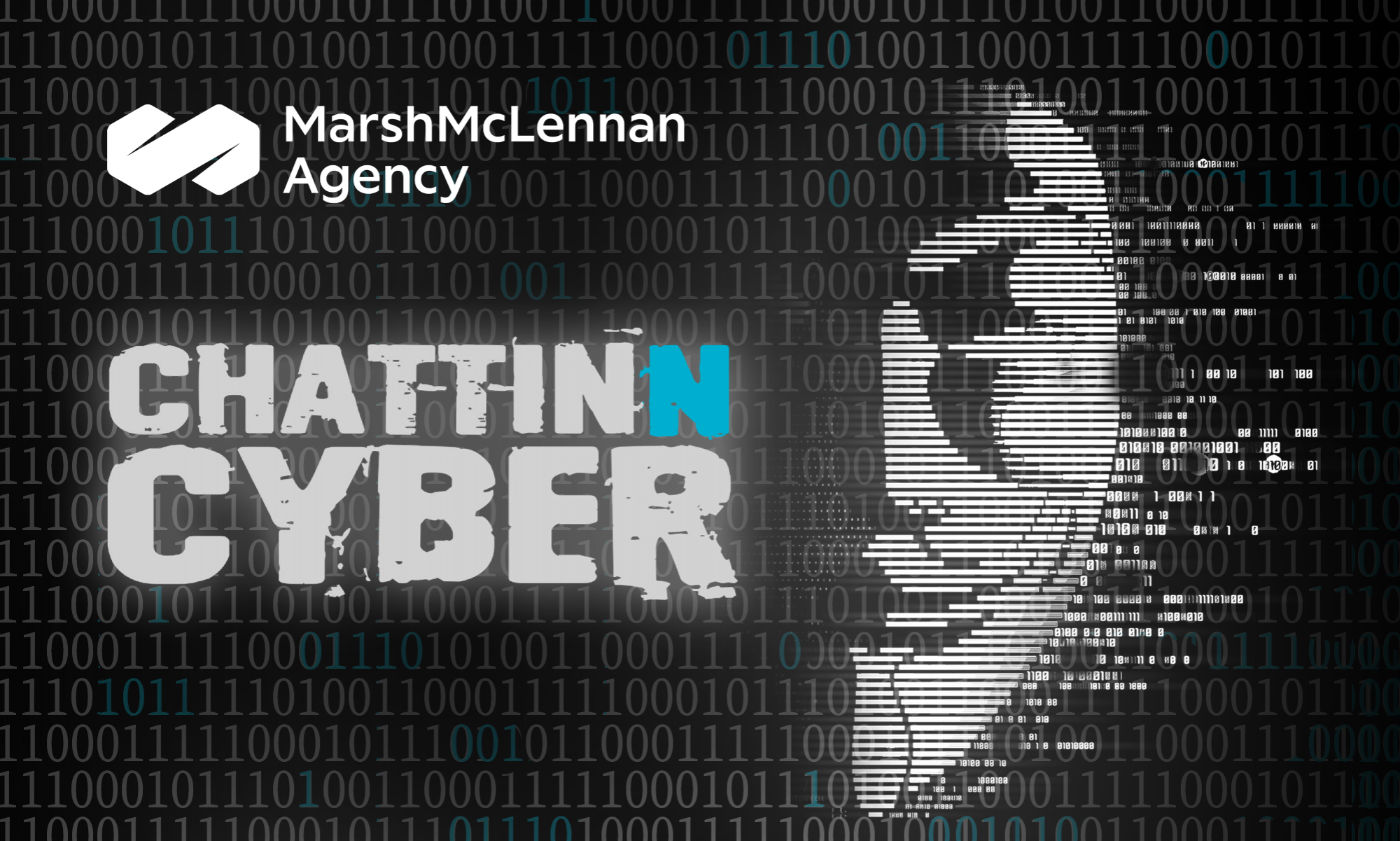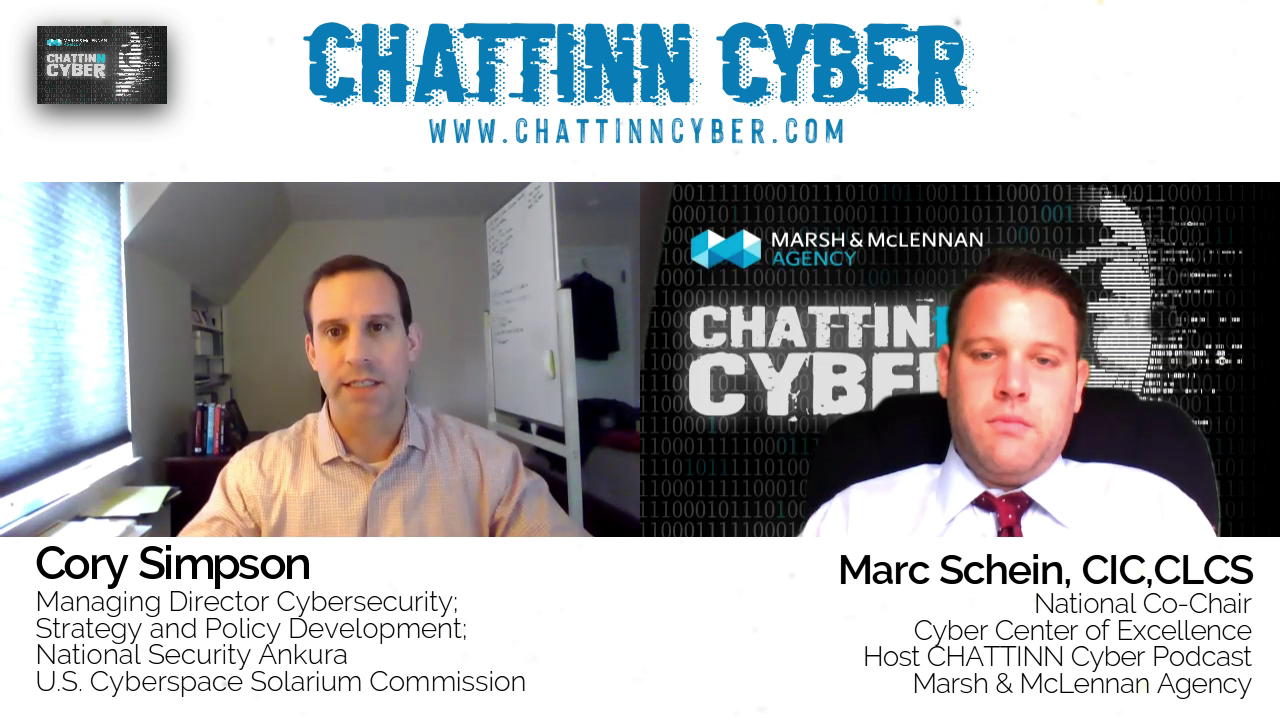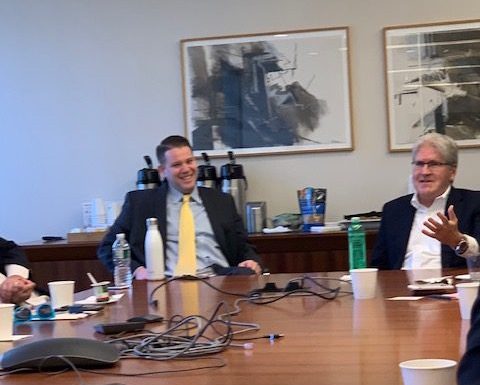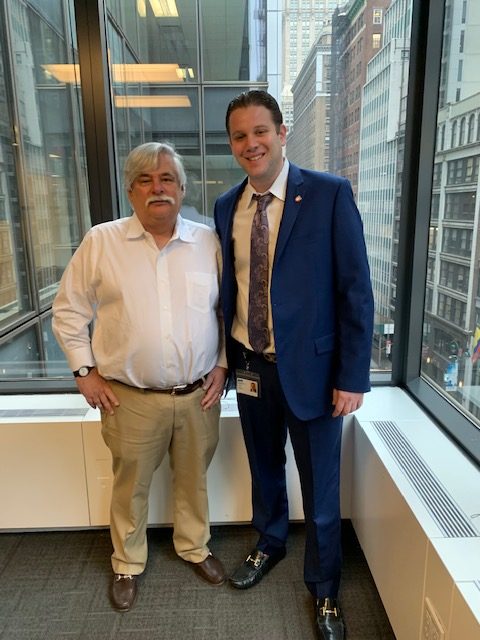Podcast: Play in new window | Download (Duration: 29:30 — 27.0MB)
Subscribe: RSS
In this episode of CHATTINN CYBER, Marc Schein interviews Cory Simpson, Senior Director and Lead for the U.S. Cyberspace Solarium Commission, Homeland Security Professor at Clemson University & Managing Director at Ankura, with more than 15 years of experience as a U.S. Army officer, federal prosecutor, national security lawyer and strategist.
Cory reports the findings of the U.S. Cyberspace Solarium Commission, an independent, bipartisan, and multisector commission, in which he acted as Senior Director until July. The commission, named for the Solarium Project set up by President Eisenhower, was comprised of fourteen members, including two senators and four house representatives, six internationally recognized experts in cybersecurity, and the FBI director. Together, these members developed legislative proposals as recommendations for Congress. Including Layered Cyber Deterrence
The two goals of the commission were creating a grand strategy for cybersecurity and identifying the policies needed to achieve that strategy. From ensuring secure democratic elections to supply chain security, the commission covered both public and private cybersecurity challenges, including the current COVID-19 pandemic. Of the more than eighty recommendations for both the executive and legislative branches, 29 recommendations involving legislation are already poised to become law.
The Solarium Commission, AI Commission, and the Commission on National Service informed legislators that if we don’t have people to implement these strategies, they’re not going to work. Cybersecurity at a national security level is all of our responsibility, not just the government’s responsibility.
Additionally, Cory dives deep on specific recommendations, including creating a public/private relationship, perhaps scaling a model currently in place in the UK. Beyond the borders of the U.S., he explains digital trade zones should encompass all of the western democracies.
Cory wraps up with some insights into election security, we have security at odds with access. If you want a secure system you limit access which is the opposite of what we are doing when we want Americans to vote. In addition, Cory covers the challenge of an anonymous vote and the importance of a paper-based backbone to voting. Tune in to hear the advantages the U.S. democracy carries in its decentralized system!



